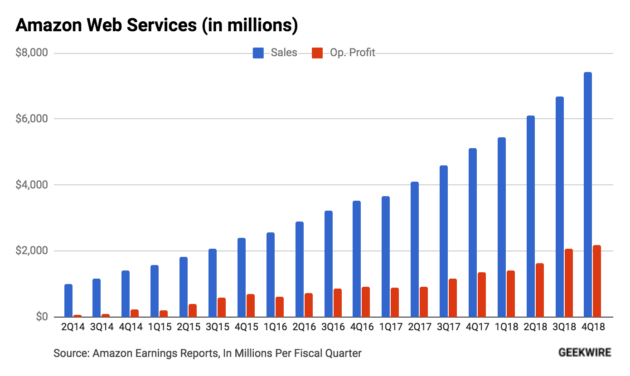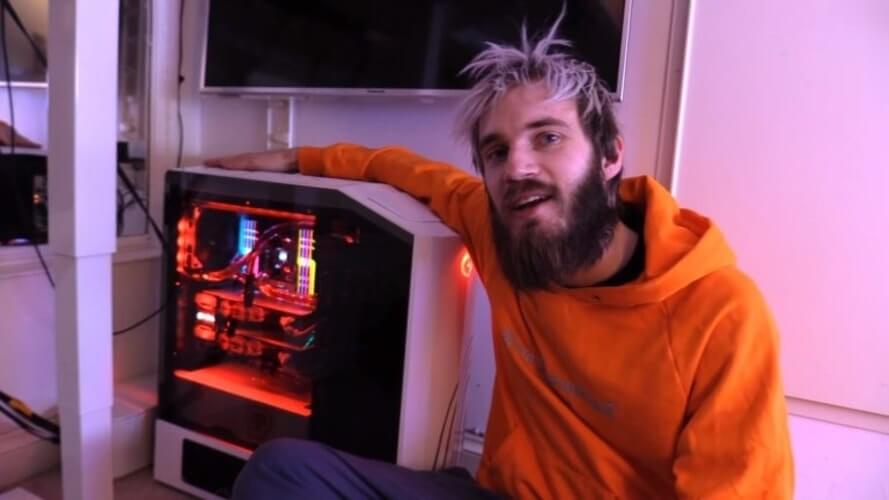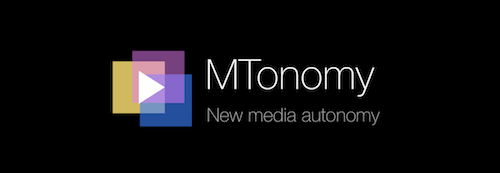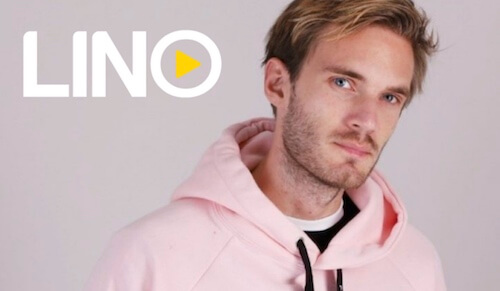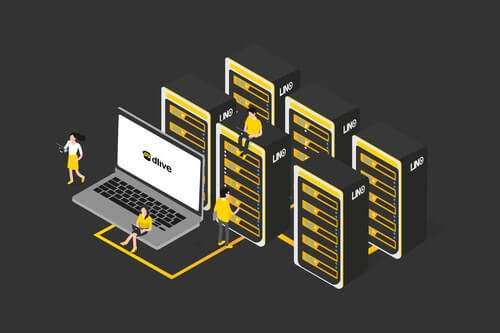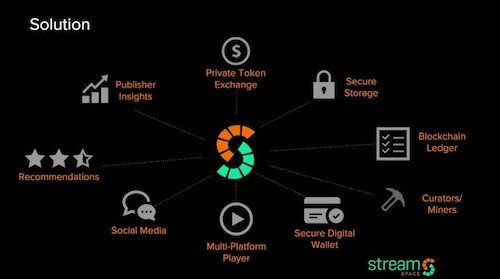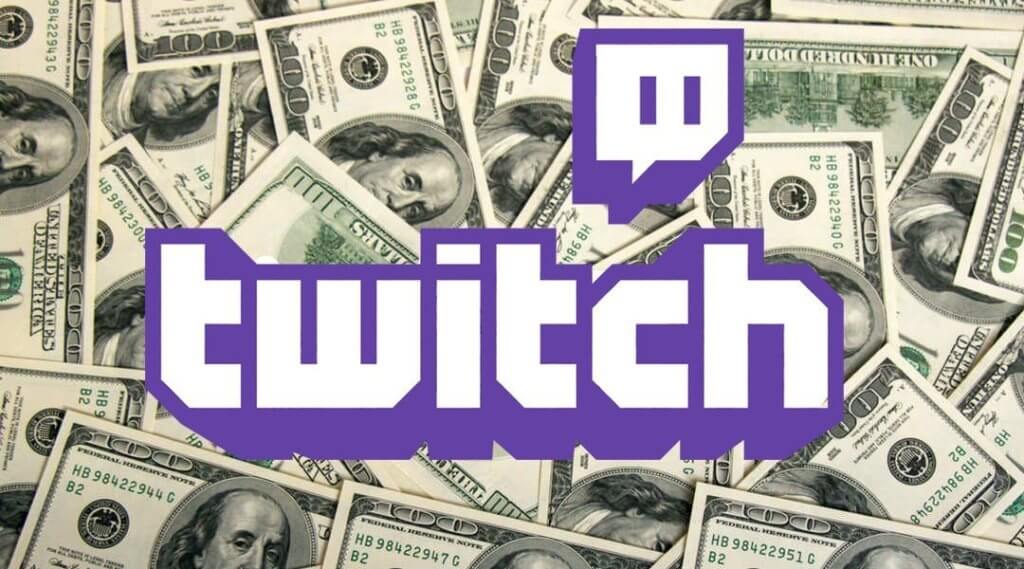Blockchain platforms for content creators will remove the power from platforms and fairly payout to content creators.
Content creators will get paid more, their content protected and it will all happen with blockchain technology using something called ‘smart contracts’
Smart Contracts are the future for content creators
According to the Deloitte Digital Media Trends survey, Americans pay an estimated $25 billion each year for streaming services, and advertisers pay $20-25 billion to get their attention. At the moment the content creators are not getting the biggest slice of the pie.
Since huge profits are the most fertile conditions for growing competition, new platforms emerged and to attract users, these new platforms are giving more back to the users and even viewers, in a fair and controlled manner. (In a latest move Aug 2019 Ninja moved exclusively to the new platform Mixer, big names like Tfue and Summit1G might get bought out in the same way)
So how is this going to happen? Well, by using the hype of this decade – blockchain and smart-contracts.
Due to many possible models to use blockchain, it will soon be all around. In streaming services, too. From utilizing the sharing of data storage and payment with cryptocurrencies to rewarding views and likes.
In this article we will cover some of the blockchain features and their benefits as a streaming services:
- Decentralization as a future of streaming services
- What is blockchain and what are the “smart” contracts
- Streaming services that are giving and receiving
Fast navigation
Decentralization as a future of streaming services
A large portion of society supports the decentralization idea. People connect decentralization with democracy and giving power back to the people.
Therefore, ordinary people find it appealing, and the only people that don’t are a select few that are pulling the strings from high above the rest of us. This is the reason why some concepts like the BitTorrent protocol were so popular.
Remember BitTorrent
Created in 2001 by a programmer named Bram Cohen, BitTorrent brought a new model of multiple data carriers. In practice, it means that a network of computers shares between them the parts of one large video, for example.
Although copyright violating, it reduced the server problems in distributing the large files. That was my first taste of peer to peer sharing, and I loved it.
The Rise of Web services
YouTube users upload a ridiculous amount of videos-hours every minute. Since streaming services need storage capacities, this data overflow builds up electricity and maintenance costs.
As a result, companies turn to cloud-based solutions and cheap serverless alternatives. That is why Amazon cloud-computing division sales in Q1 2019 rose to $7.7 billion from $5.44 billion a year earlier!
According to The Diffusion Group (TDG), the broadband video will grow to 38% of total viewing minutes by 2025. As the future of streaming services will require more storage, the decentralized model is becoming a necessity for streaming services.
The second reason for decentralized streaming lies in the power balance, the power is heavy on the side of the platform. Within a second, a platform can change the policy, rules of monetization or close any account.
Migration to another platform is costly and, in some cases, impossible, so this creates a heavy reliance on the platform that maintains control.
The migration to blockchain platforms has started
One of the top earners on YouTube, famous content creator PewDiePie, joined Dlive.tv. Recently he announced that in the future PewDiePie gaming would be available only on this blockchain based streaming service.
Pic: PewDiePie with his custom built Origin computer
What is a blockchain ‘smart contract’
A smart contract is an ‘incorruptible’ contract, that will obligate the platform (like youtube) to pay the content creator, and other varies rules that are put in place.
To fully understand, let’s have a brief recap.
Blockchain is the most famous example of cryptography technology used for securing transactions and ownership. Blockchain became popular, and started a wave of innovative ways to use blockchain technology.
And this wave has been hitting all other online areas as well, including the development of smart contracts.
The allure of crypto-currencies is that is ‘incorruptible’, and that when the contract is made, think the contract between a content creator and a platform about ads running on his/her channel, the payment will be distributed as per the contract and no policy change or directors meeting will be able to affect the smart contract from fulfilling the payment.
Meaning that the control is removed from either party after the initial agreement has been made.
But what does this have to do with streaming services?
Well, blockchain needs a network of computers to store data of these transactions. Similar to sharing large files in the above-mentioned model, every computer on the network shares data of any transaction that happened. Thus, these transactions are immutable and much safer without intermediaries.
Nowadays, there is a trend of combining blockchain and cryptocurrencies with existing models. For example, one of the latest “blockchain platforms” (MTonomy) is not decentralized.
Similar to the model of Netflix, MTonomy’s difference is that a user can buy or rent movies only with cryptocurrencies. This platform also utilizes the “smart contracts’ which can guarantee to the owner of the video that the transaction occurred.
These smart contracts are nothing but the set of preconditions for the payment. If the condition of the smart contract didn’t happen, the transaction wouldn’t occur. However, due to Blockchain transparency, content creators now can be free from unauthorised use of their content.
Streaming services platforms based on blockchain
Sharing data without intermediaries ringed the bell for some visionaries that tried to come up with a better solution than YouTube, Vimeo or Twitch. Time will tell whether this is possible or the tech giants will also include a blockchain solution. Seemingly, the game is on for taking over the number one position in streaming services. And these are some of the challengers:
LINO
Founded in July 2017, founders of Lino raised $20 million in February 2018 to further develop the platform. As a platform, Lino promotes “Value-sharing Content Economy.” According to Lino, they incentivize content creators, viewers, and all other contributors.
It is the blockchain platform behind Dlive, a streaming service that partnered with PewDiePie. In the future, we can expect this platform to grow regardless of blockchain. It is because PewDiePie brought his big fan base to this platform, and others are joining this trend.
Since being ad-supported, the platform brings creators revenue from marketing. According to one of the founders, the content creator can make three to five times more revenue than on YouTube and Twitch. It is because this platform is cutting out the middle man and providing most of the profit for the content creator.
On Lino, content creators get payments in Lino tokens. And many stakeholders are getting Lino tokens on this platform:
- Content creators
- Viewers
- App developers
- Infrastructure providers
- Validators
Looks complicated? Well, if you are in the bottom three, you are a software developer and familiar with the concept. Otherwise, all that you need to know is that as a content creator you will get the most. But as a viewer, you are entitled to 5% of the value.
As Lino founders don’t take any cut, their benefit is from the difference in the value for Lino tokens whose price will rise over time.
FLIXXO
Another platform founded in 2017, Flixxo is the video distribution platform based on community. Read – decentralized video distribution network. With Flixxo, content creators and viewers mostly benefit from their engagement.
Flixxo started as an idea of “Like coin” that became Flixxo cryptocurrency. Asking themselves what the viewer gets from hitting a “like” button, founders of Flixxo decided to reward this behavior. Since liking is a form of an opinion, Flixxo limits the number of likes per user. By creating this scarcity, the like itself becomes a cryptocurrency.
In this model, the user will think twice before giving their like. Therefore, the content with the most likes is undoubtedly valuable. Users are encouraged to become content creators and earn more likes. Otherwise, they can comment and be active and get the smaller portion.
Flixxo also cuts off the middleman by enabling the direct contact of content creators, advertisers, and viewers.
STREAM SPACE
Stream Space dates from 2016 as a decentralized video marketplace similar to the above-mentioned newcomer Mtonomy. Initially introduced at zero cost fees for viewers, unlike Netflix, Stream Space tends to provide a unique market for the movie creators.
Paying with cryptocurrencies and transparency for content creators are benefits of this model, too. The platform executes smart contracts to stream the content only to a registered user device securely. Every user device has a certified key that is processing micropayment for streaming or downloading. Moreover, their users receive micropayments for sharing.
Very user-friendly, they also suggest movies to their users based on their preferences and search history. Furthermore, they provide an advisory role in recommending the price per video for content owners. Seemingly, they went a step forward similar to the biggest streaming services platforms like Netflix, YouTube, Hulu, and Amazon.
Stream Space makes sure that every video complies with their quality, regulatory and copyright criteria. Once approved, video creators can modify the level of royalty they pay to the platform. Their customer orientation surely deserves it.
CONCLUSION
With the growth of smartphone usage for video consumption, videos account for more than 80% of internet traffic, and streaming services have become the most popular websites. All of this is proof that the Internet has changed.
There is a widespread opinion that blockchain leads to the development of this new Internet – web 3.0. As a result of decentralization in a form that was never possible before, direct interaction removes a lot of impediments.
Nevertheless, the lack of intermediaries is not always the best choice. When agents are the experts in the field, lack of mediators means no contract whether it is a regular or a smart contract.
Although still in the infancy stage, supporters of blockchain create grand visions of the future. The first revolution, the web 1.0, was all about the static pages and delivering information for users to browse. Web 2.0 brought us the interaction on websites, applications, and more tailor-made content. Still, web 2.0 is dependent on human input and “mediators.”
For example, web 2.0 will bring you this article if you searched for it. On the other hand, web 3.0 is all about predicting the most suitable content for users, and it will bring you this article if your DNA is eligible for a content creator. To be accurate, the AI of web 3.0 will need as much data from the viewers. Therefore, blockchain based incentives for the users will reward them for their engagement that is as valuable as collecting data.
Whether on a blockchain based platform or not, the web 3.0 is coming, and content creators of all kinds will be in a better position than users. So, whether it is in your DNA or not, NOW is the best time to start making content. And streaming services based on the blockchain platform might be the best choice.





